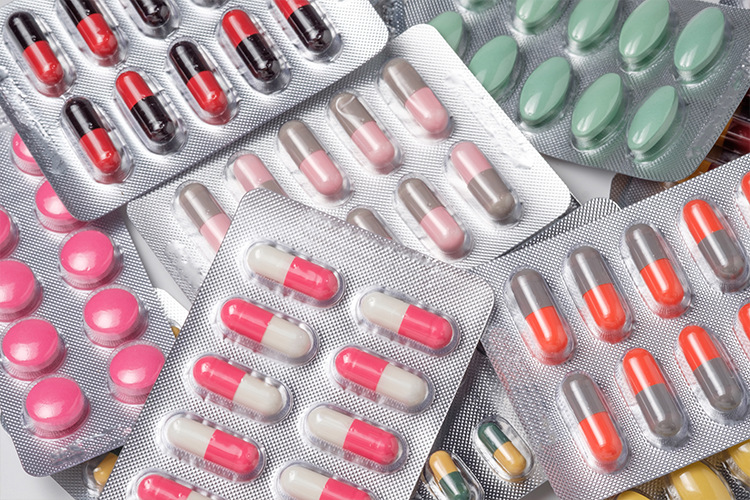Blog
Microbiome, antibiotics and obesity
As science continues to pump out the evidence, we are realising increasingly that the health and happiness of our gut bugs play a significant role in our own health and happiness.
This includes influencing our weight. And it appears there may be a link between the use of antibiotics and propensity to gain the kilos. So, what is this all about?
There are a number of factors that have significant impact on the health of the gut, and therefore the body, such as a diet high in heavily processed food and drink and low in diversity, fibre and whole foods. Other factors may also include the state of the maternal microbiome, the mode of birth, breastfeeding, hospitalisation and stress.4
And then there are antibiotics.
Antibiotics have changed the face of medicine. Our biggest threat – infectious disease – has been seriously curbed with the invention of antibiotics, and the human population has grown as a result. Brilliant!
However, whilst the population is growing, we may not be growing well.
Overuse is messing with the array of gut bugs, and messing with our health.
The gut bug and weight link
We discussed earlier this year the link between our microbiome and weight.
It is well known that giving a continual supply of low-dose antibiotics to livestock encourages weight gain – meaning less food is required to get the animals to size for slaughter at a quicker rate. But the feeding of antibiotics to our meat is also a significant contributor to the rise of antibiotic resistance, a topic of global concern, and something authorities are looking to address.3;5;6
If animals put on the pounds with antibiotics use, could this result in a similar outcome in humans?
Apparently so! We have seen decreases in Bacteroides vs Firmicutes population ratio correlated with increased weight.2 It has been found infants exposed to antibiotics in the first 6-12 months of life are more likely to be heavier than kidlets without such treatment.1;7
The presence of particular microbial populations in our intestines is being shown, over and over, to influence our health. And a primary disruptor of microbiome harmony is the antibiotic.
This makes sense, right? Antibiotics are designed to destroy bacteria. And with their use, we can decrease diversity and anti-inflammatory promoting bacteria, each affecting our ability to gain or lose weight.
Don’t get us wrong – antibiotics has saved countless lives! And antibiotics are not alone in disrupting a happily balanced intestinal environment. But are they being dished out too readily, with little idea of whole body consequence?
What to do?
Medicine is becoming increasingly aware that the body is a world of interconnected systems, and the microbiome is one avenue in which multiple body systems connect.
Nearly ALL of us have had multiple courses of antibiotics over our respective lifetimes. What can we do to recover our friendly, helpful, health supportive gut bugs?
Whilst science is still in early days in understanding the complexity of the microbiome, the power may be in your hands! Check out our down-low on the microbiome, and get gut happy!
By Angela Johnson (BHSc Nut. Med.)
References:
- Azad, MB, Bridgman, SL, Becker, AB, & Kozyrskyj, AL 2014, ‘Infant antibiotic exposure and the development of childhood overweight and central adiposity’, International Journal Of Obesity (2005), vol. 38, no. 10, pp. 1290-1298.
- Cardinelli, CS, Sala, PC, Alves, CC, Torrinhas, RS, & Waitzberg, DL 2015, ‘Influence of intestinal microbiota on body weight gain: a narrative review of the literature’,Obesity Surgery, vol. 25, no. 2, pp. 346-353
- FDA 2013, ‘Phasing Out Certain Antibiotic Use in Farm Animals’, U.S. Food and Drug Administration, viewed 4 July 2016, <http://www.fda.gov/ForConsumers/ConsumerUpdates/ucm378100.htm>
- Festi, D, Schiumerini, R, Eusebi, LH, Marasco, G, Taddia, M, & Colecchia, A 2014, ‘Gut microbiota and metabolic syndrome’, World Journal Of Gastroenterology, vol. 20, no. 43, pp. 16079-16094.
- Gonzalez Ronquillo, M, & Angeles Hernandez, JC 2016, ‘Antibiotic and synthetic growth promoters in animal diets: Review of impact and analytical methods’, Food Control, [ePub ahead of print].
- Hughes, P & Heritage, J n.d., ‘Antibiotic Growth-Promoters in Food Animals’, Food and Agriculture Organisation, viewed 4 July 2016, <http://www.fao.org/docrep/ARTICLE/AGRIPPA/555_EN.HTM>
- Saari, A, Virta, LJ, Sankilampi, U, Dunkel, L, & Saxen, H 2015, ‘Antibiotic exposure in infancy and risk of being overweight in the first 24 months of life’, Pediatrics, no. 4, p. 617.












